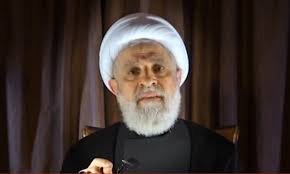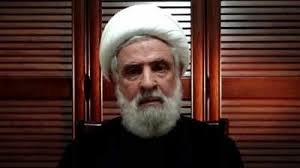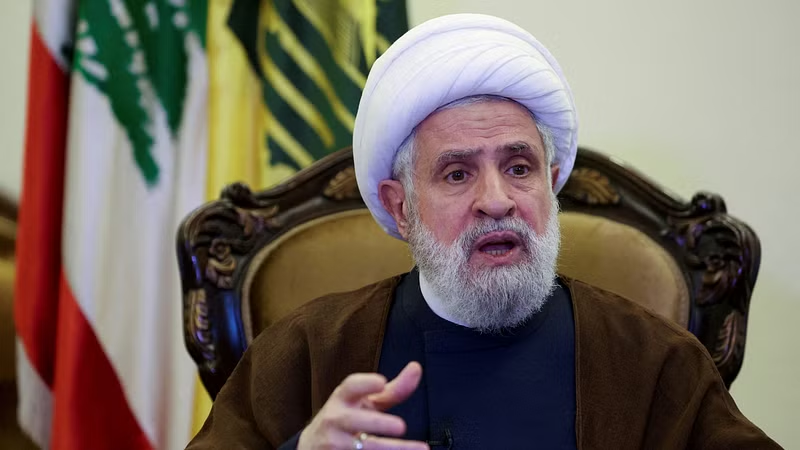Key Highlights:
Hezbollah has seen a very significant change with the appointment of Sheikh Naim Qassem as its interim leader, in the wake of recent Israeli airstrikes that killed Hezbollah’s long-time leader, Hassan Nasrallah. Qassem’s promotion has sparked much speculation and has further probed the dynamics of Hezbollah and the much wider regional conflict in which Israel, Iran, and Lebanon are involved.
Legacy and Impact for Nasrallah on Hezbollah
Hassan Nasrallah defined Hezbollah for more than three decades as the socio-political and militant force in the region that is both a political entity in Lebanon and an affiliate of the Iranian Islamic Revolutionary Guard Corps. Charismatic leadership is synonymous with Nasrallah: the ability to represent defiance against Israel is the characteristic that defined Hezbollah’s military and political postures. His passing marks one of Hezbollah’s most difficult moments in both its leadership succession and current war against Israel.

Who is Sheikh Naim Qassem?
Sheikh Naim Qassem is a co-founder of Hezbollah, having been a member of the organization since the 1980s. Bachelors of Science in Chemistry, Lebanese University, his professional life began as a member of the Amal Movement. Throughout his career in the organization, Sheikh Naim Qassem has remained aligned with Hezbollah’s ideological and political goal to resist Israeli influence. Qassem became Hezbollah’s Deputy Secretary-General in 1991. He is more of a man of strategy and very deep-rooted ideological stands. Although very much less charismatic than Nasrallah, Qassem is regarded as a highly calculated leader, especially at the military and political fronts.

Temporary Leadership During The Period Of Uncertainty
Although Qassem’s role is acting, his leadership is considered critical in stabilizing Hezbollah through this transition period. Ultimately, the group’s Shura Council, Hezbollah’s highest governing body, will decide the permanent successor. Hashim Safiuddin, who is a high-ranking member and a relative of Nasrallah, has come into consideration, but Qassem’s role will be necessary in providing continuity. According to analysts, his appointment reassures Hezbollah’s supporters and reflects an unbroken commitment to Nasrallah’s vision of resistance against Israel.
Escalating Confrontation with Israel as Hezbollah Stands
In light of the assassination, relations between Israel and Hezbollah have become more strained. It has been vowed that their new leadership will maintain a continuity of the operations from resistance. The military ranks in Israel are placed in an alert position; besides this, the officials assert that more than Israel’s interests Hezbollah is threatening the regional peace as well. Qassem has thus made it clear that his future stance will mirror the original Hezbollah position, including adhering to its rhetoric toward Israel, where, consistent with Nasrallah’s views, he shares Israel as a “risk for humanity” and projects a resistance as a defunct shield for Lebanon, together with other regional actors.
Iran’s Role in its Relations with Hezbollah
As if the alliance by Iran with Hezbollah were a puzzle, the connections tie them together in so many intricate ways. The Iranian government supported Hezbollah and reportedly considers the leadership transition of Hezbollah as the pivotal factor in its region-wide strategy. The internal source believes that Iran was both ideologically and strategically invested in Hezbollah, where its resistance served as part of the greater objective to curb Israeli influence. Qassem’s leadership may confirm this alignment, especially given his past support for the Hezbollah support of Palestinian resistance movements, which is in line with Iranian interests in the region.
Potential Successors and Future of Hezbollah
This also raises the question of who will take over Qassem’s position as a permanent leader. Qassem holds the position now, but some members support Safiuddin due to his familial connection to Nasrallah and political background. The rise of Safiuddin could be indicative of continuity of Nasrallah’s policies, yet some analysts suggest that the expertise in military strategy would make Qassem more stabilizing, especially when the group’s conflict with Israel has become more fierce.
This will have far-reaching impacts for Lebanon and the Middle East more generally.
While Qassem might not drastically change the approach of Hezbollah toward Israel, his leadership style may definitely affect the strategic approaches of the group. Hezbollah is a huge player in Lebanon’s domestic politics, and any major changes by Qassem may affect the sensitive socio-political fabric of Lebanon. The support base of Hezbollah in Lebanon still sees the group as its protector against Israeli aggression; hence, it adds further complexity to Lebanon’s government, which struggles to keep Hezbollah’s influence in check against national and international expectations.
As Hezbollah and Israel continue their tit-for-tat escalations, the stability of the region has increasingly come under threat. Analysts are watching carefully Qassem’s decision-making as interim leader in some circles, which see a period of heightened violence as the result of this retaliation and defensive measures being taken by Israel. Eventually, how Qassem manages this turbulent period can define his legacy and frame Hezbollah’s future.
In conclusion
Naim Qassem’s leadership heralds a new chapter for Hezbollah, marked by resilience in adversity. The vote by Hezbollah’s Shura Council on the leadership will most likely have a bearing on the stability of Lebanon and the future direction of Israel-Hezbollah relations. Whether Qassem remains a temporary stabilizing force or becomes a longer-term leader, his tenure will be a defining chapter for Hezbollah and the region.
For Latest News Updates Click Here
